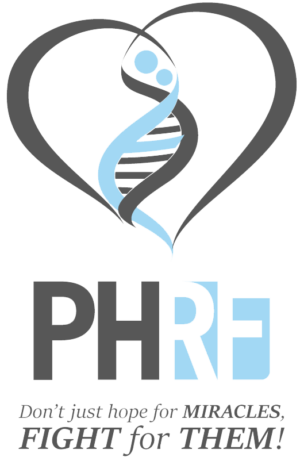The Quality of Souls
The Quality of Souls
A mother works to find a cure for her son’s syndrome, Spring 2013
by AUDREY DAVIDOW LAPIDUS (COL ’95)

I tried to convince myself that he would catch up. And that one day, as he streaked across the Lawn, we would all laugh about how we worried something was wrong when he was just a baby. I tried to convince myself, but deep down I knew; I had this terrifying feeling that it wasn’t going to turn out that way.
That’s about all I remember of my son’s first year. They say that happens with trauma—you block it out. But I’ll never forget the night the doctor called to tell me what was wrong with my baby boy.
He said Calvin had a mutation in the 18th chromosome, an extremely rare genetic syndrome called Pitt Hopkins. Fewer than 200 cases in the world had been diagnosed—and when the doctor took his genetics boards 20 years ago the syndrome had yet to even be discovered. By this point in our conversation, I was already frantically Googling.
The papers online said my son would not talk. They said he may or may not walk. He would likely have seizures as he got older. And he would be severely impaired, both intellectually and physically. He was only 13 months old and already his future felt grim, if not totally lost.
That was exactly a year ago. On that day, in that darkness, I never would have imagined where we would be now. Old friends stood by us. New friends rallied to support us. And so many friends we’d lost touch with, in particular so many U.Va. alumni, came back into our lives. Their phone calls, emails and meal deliveries buoyed us through that difficult time.
This past year has been an education in the things that matter. All the smiling Calvin does is actually part of his syndrome—children with Pitt Hopkins tend to be very cheerful. I have met many special-needs parents whose children do not have the muscle control to smile or whose sensory disorders leave them so uncomfortable in their own skin they can rarely enjoy their surroundings. My heart aches for them. My son can smile. It used to seem like such a little thing.
In the early days after the diagnosis, I tried to take solace in mantras like “everything happens for a reason.” The truth is I don’t believe some divine order led Cal to me, or me to Cal. But I know that I have two choices—hope or despair—and that the latter gets us nowhere.
Of course, not everything is so clear cut. I worry that I will still be changing his diaper when he is 30. How will that work, I wonder? Then there’s the big question, the one I can’t bring myself to utter out loud—will my son have a meaningful life?
I know that Cal has made my life immensely more meaningful. He is a constant reminder to look not at human deficiencies but at the quality of souls. Perhaps it’s just the desperate hope of a mother trying to make sense of it all, but I like to believe that his brain, unclouded by judgment and ego, knows only light and love.
Our son’s diagnosis has given my family a new purpose: to find a cure for Pitt Hopkins. Because Pitt Hopkins is an extremely rare, recently discovered disease, there was no foundation, no research and no hope of clinical trials at the time of Calvin’s diagnosis. My husband and I decided to change that. In the past year, together with a small group of families, we have raised more than $300,000 for Pitt Hopkins research. We recently made our first grant to David Sweatt, an esteemed neurobiologist at the University of Alabama, Birmingham.
A large part of the grant was for Sweatt to hire the best researcher he could find to assist him. After a nationwide search, Sweatt found Andrew Kennedy (Grad ’11), toiling away in the chemistry laboratory of Timothy Macdonald at U.Va. To me, this felt like kismet—a U.Va. scientist will be the one helping to find a cure for my son.
Of course, finding a cure is my wildest hope—one that I have to keep in check at the back of my mind and tucked deep in my heart. My realistic hope is that there will be a treatment within the next decade that won’t necessarily cure Pitt Hopkins kids but will give them much higher functioning, fuller lives.
Still, that is a long time from now. For today, for now, I try to live in the present, to focus on the blessings I have, rather than what I want. It isn’t always easy, but when I forget, I need only look over at my son, beaming his bright, beautiful smile—reminding all of us to do the same.
Audrey Davidow Lapidus lives in Los Angeles with her husband, Eric; and their children, Sadie, 6, and Calvin, 2. She is president of the Pitt Hopkins Research Foundation.
http://uvamagazine.org/first_person/article/the_quality_of_souls#.UTqPRaX_Q22


